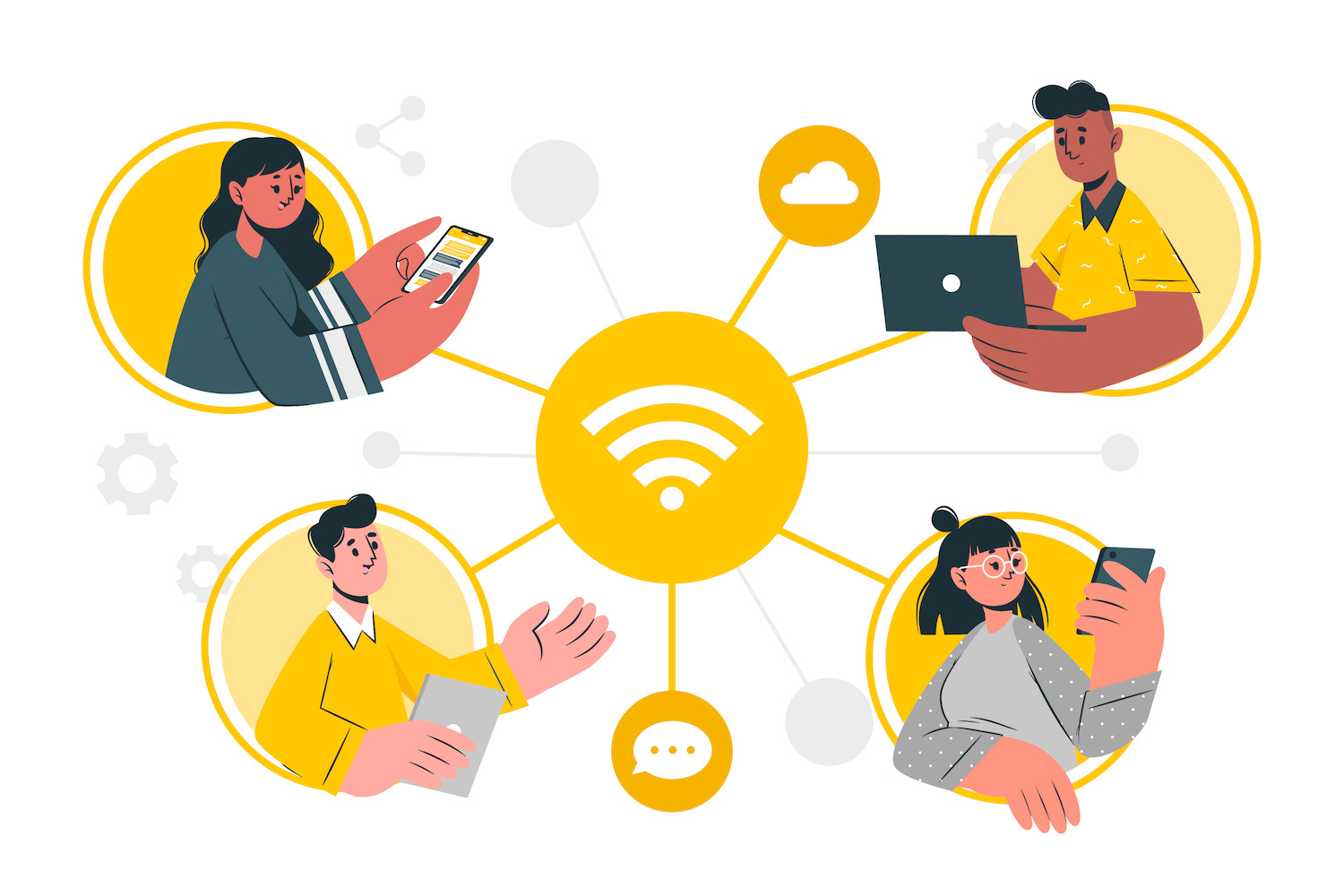Executives, let's change how we interact in the workplace.
In the last month, I've participated in an active debate on Quitting during the World Economic Forum's annual gathering in Davos. Changes in the workplace are rapid. I'm amazed that the leaders have been asking plenty of appropriate questions. How can you weigh the positives and the negatives? And as well the risks and potential associated by AI in addition to the necessity of creating an environment that's durable and more comfortable.
But, there is a question worthy of further consideration considering that the world is changing technologically as well as post-pandemic behavior and expectations have been changing...don't the leaders of our country also need to adapt?
A whole new breed of digital natives who has been able to enter the workforce. They've grown up creating and sharing videos instead of calling or texting. Today, people are capable of thinking of TikTok and YouTube as their main sources for data. In their private lives, they're very active and involved.
In their work lives however, it's a other story. There are significant declines of employee engagement and satisfaction among those who work remotely Gen Z and younger millennials. The only 4 percent of workers who are remotely or hybrid have a clear understanding of what they should expect from their employers when they are working. A majority of Gen Z employees are ambivalent or aren't engaged in their work. According to our thinking, engagement of employees is the primary indicator of the efficiency of workers that affects every company and all earnings.
What is the cause of the disconnection? In the workplace, and all through the course of our lives, it's common to look for a connection to a greater thing than what we really are. It's our natural impulse to be part of larger things and claim an image that is honest, genuine and real and genuine. Because our culture is becoming connected and digitally disparate, and driven by AI and in a haphazard manner, it's becoming more difficult to connect with everyday individuals. Particularly, if we've not altered our methods of working in order to adapt to the new generation. Our employees will be required to handle the plethora of paperwork and compose lengthy emails, and with attending boring gatherings. The employees are informed about the forthcoming layoffs and corporate priorities through messages that are composed of scripts, as well as automated messages that can be created with ChatGPT. Our only insight for managers comes from surveys of participation using cookies cutters, or live events with very poor turn-in rate in addition to times it is a case of funny chats, or questions and answers.
The traditional management models do not help us. The time is now to alter the way we , as leaders, conduct ourselves and communicate with our employees. Similar to how we are determined to improve the abilities of our employees in regard to evolving technology capability of their workforce changes as well as demographics and demographics are essential to improve our capabilities to lead to increase confidence and connect with all of the population.
I've played around with a few of them over the past few years . Here's what I've learned that I've applied to my life and I believe it will help us to perform better , and to lead more effectively.
1. You are who you are.

As soon as the outbreak was announced that day, I hosted the town hall, which was open to the world at my parents' home in Flint, Michigan -- tired, wearing my pajamas that were comprised of velvet, as was my son who was just a baby, and my mother , who was shifting between different background.
This could have been one of the most efficient communications ever at any point in the past.
Why? because it was unplanned and it also caused discomfort unpleasant, uncomfortable and filthy. It's very easy to slip in to "us against us against them" circumstances while working in an office, particularly in times when there is pressure or an issue. It's easy to see "leadership" as an unimportant or unimportant tool. It's true that being video-first in your communication is an effective deterrent. It forces you to peel away the veil, and shield your own self from editing or writing your communications. One of the best ways to share your thoughts is to be your true self.
There are a number of leadership examples where leaders took on risks, and ended up backfiring...but I'd guess that the majority of the time this was due to the fact that the leader had too numerous responsibilities. It is important to accept that your imperfections in the team you work with. Everyone has flaws which allow us to be humans. Everybody wants to see their leaders do their best. This is a great opportunity to encourage us to be more like the leaders they admire.
2. Begin by asking "why . "
As with many managers I've faced difficult choices in the past year. In the past I've had to make senior decisions as well as laid-offs along with restructuring and cutting projects in order they are more effective. It's my responsibility to make these difficult and controversial decisions as well making rapid adjustments to the business.
With the increasing amount of instances, people want to know what drives them to make their decisions. The issue is not only about the "what" however there is another "why". That includes the desire to know the wider perspective of competition, how trade-offs are considered and balanced, along with the process that was used and the time it took.
The classic book about comms suggests that when confronted to an urgent issue in your communications that require attention from you to be a bit strained first address the "what" before beginning the crucial process. In my experiences, I've experienced greater results in having my team members make the decision to place themselves as the primary people who need to be informed of the issue.
At the end of the day, beginning with "why" is a the principal rule to adhere to in all communications regarding . There are certainly some limits in a fully transparent communications (legal or PR-related , as well as risks for consumers) However, what I've seen is that the predominant perception regarding the barriers to transparency are one of. Perceived. People may disagree with your process of making decisions, but you could claim that if they do not agree with your decision that it's not the fault of your part. They'll be able to accept and respect your decision-making process in the beginning when you understand the rationale behind them for backing them.
3. It is important to go to events in person, or gatherings with a group that are in personal. it more personal.

It's true that I see the irony in having the position of CEO for a business who creates videos that say that. One of the most valuable lessons I've gathered over the last couple of months is that we've been in a stalemate for too long , not having enough knowledge to bring the teams closer and closer in real-time.
In January, a few days following the announcement of cuts, we hosted a kickoff for our business in NYC. This event was attended by individuals from over 12 different countries. We had employees from Ukraine that traveled via plane or train to get to us. We decided to stay clear of traditional confetti that is typically used at events, and instead chose to wear casual attire with only one or two ounces. It's definitely an extremely inspiring and necessary decisions I've ever made.
This is particularly relevant for those who lead teams that fly and interact with their employees wherever they may be. The group we work with is an executive-level group that spans the globe , with 8 distinct offices spread across all over the world from Seattle all the way to Switzerland. Most of our team was appointed in the last year. Therefore, they are young and still forming one cohesive group. In order to speed up the process of creating an effective group, the team started hosting offsites inside the city that were located near they would stay at the home of their leader. Our CFO's mother was gracious enough to host us at her fireplace in Vermont. Sales' head at the time was wearing an the apron. He made us frittatas for breakfast. The sessions for working were held at the Table of the Chef of Product.

The crisis gave us an opportunity to look at our lives in addition to family life . If we can make use of it and incorporate the incident into our daily lives we can build stronger and more well-integrated groups.
4. It is possible to shifting the "lean back" to "lean forward" information.
Communication skills are crucial and could develop to the ability to design "lean forward" experiences rather as "lean back" broadcasts. Humans have attention spans that have decreased (now below 8 seconds which is less than that of a goldfish!). Communication is done by means of a myriad of emails. It could be via emails that you've read or a highly created town hall where you are allowed to participate of and observe.
The detrimental impact that this has on the engagement of viewers is apparent from our own research, which shows that the length of time that people stop viewing videos has diminished in the past few years. If we don't make changes to how we run our businesses and risk losing viewers will significantly impact our ability to make sure our teams are working together and effectively.
It's essential to alter our mental model and to be open to different things. The younger generation that is working is getting a a head start on us because they can generate and record real and full of details. They're ahead due to their freedom from limitations that we had to live with by using outdated methods to communicate at work.
Employees do not leave their job They let their supervisors depart. In fact, those who are the most productive bosses. According to the findings of an study that involved over 113,000 of the top executives. A key aspect that helps leaders be successful is their reliability to their employees. We, as leaders, must be trained to behave in more authentic, interesting and effective manners. I'm betting that the executives who embrace changes in the world will have greater success managing the coming generation of their staff. They'll have better-educated and actively engaged teams spread across the world, collaborate with their employees to achieve higher results and establish powerful relationships that produce remarkable outcomes. They'll cease communicating and create connections that are better.
The post first appeared on this website
The original post appeared this site
This article first appeared on here
This post was posted on here
